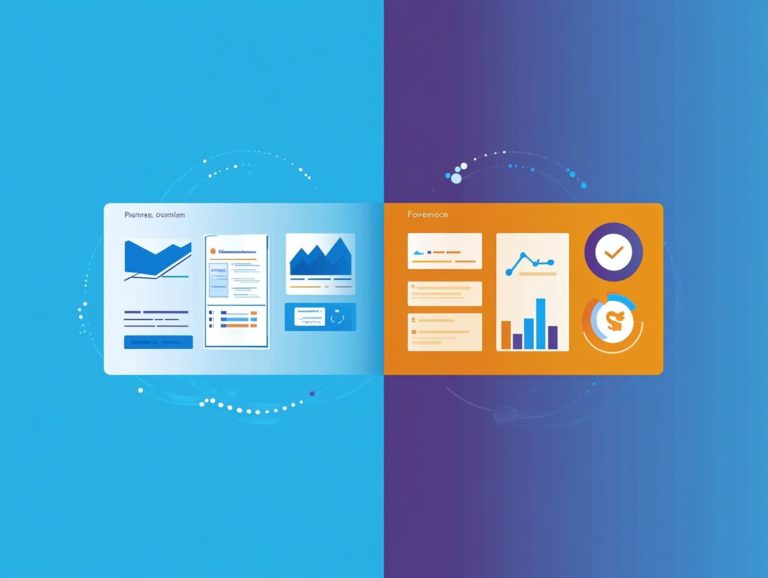Comparing CRM Migration Services: Key Factors
In today s fast-paced business landscape, mastering effective Customer Relationship Management (CRM) is essential for your success.
As your company evolves, transitioning to a new CRM system can feel daunting yet remains a critical undertaking. Grasping the nuances of CRM migration and its importance is the first step toward ensuring a smooth transition.
This article delves into the key factors you should consider when selecting a CRM migration service, the various types available, and how to evaluate your options effectively.
By the end, you ll be fully equipped to make informed decisions that enhance your business s efficiency and elevate customer engagement.
Contents
Key Takeaways:
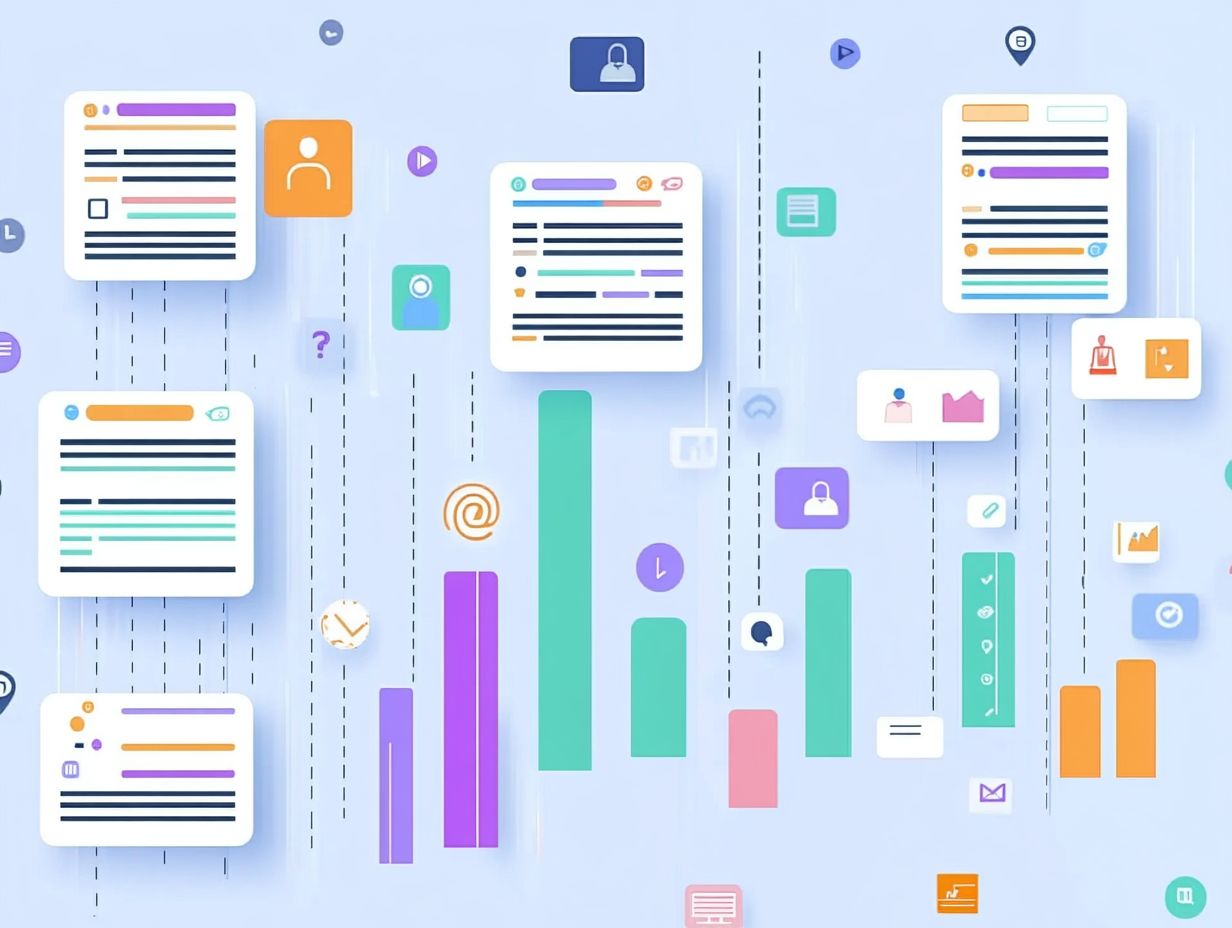
- Experienced and expert CRM migration services provide a smoother transition to a new CRM system. They possess the skills to handle complex data with accuracy.
- Cost and time efficiency should be considered when selecting a CRM migration service, as it impacts your overall budget and operations.
- Data security and privacy are crucial during migration. The service should have strict measures to protect your sensitive customer data.
What is CRM Migration and Why is it Important?
CRM migration involves the careful transfer of customer data from one Customer Relationship Management (CRM) system to another. This step is vital for businesses aiming to elevate data quality, streamline processes, and foster stronger customer relationships.
By leveraging renowned platforms like HubSpot, Salesforce, or Freshsales, you ll achieve a successful migration that aligns with your strategic objectives and enhances your data management goals.
Moving data is only part of effective CRM migration. It is critical for maintaining data integrity, ensuring your historical data is accurately represented in the new system without any loss or corruption.
Implement well-thought-out data migration strategies to minimize downtime while facilitating user adoption. Utilize intuitive tools and interfaces to make the transition as seamless as possible.
Experienced migration experts provide invaluable insights to navigate potential challenges. This approach ultimately drives a higher return on investment (ROI) as you establish robust, user-friendly systems that cater to your customer engagement needs.
Key Factors to Consider when Choosing a CRM Migration Service
Selecting the right CRM migration service is essential for facilitating a seamless transition of your customer data. To make an informed choice, consider the key features to compare in CRM software. This decision significantly influences the success of the migration process and the long-term effectiveness of your new CRM system.
Experience and Expertise
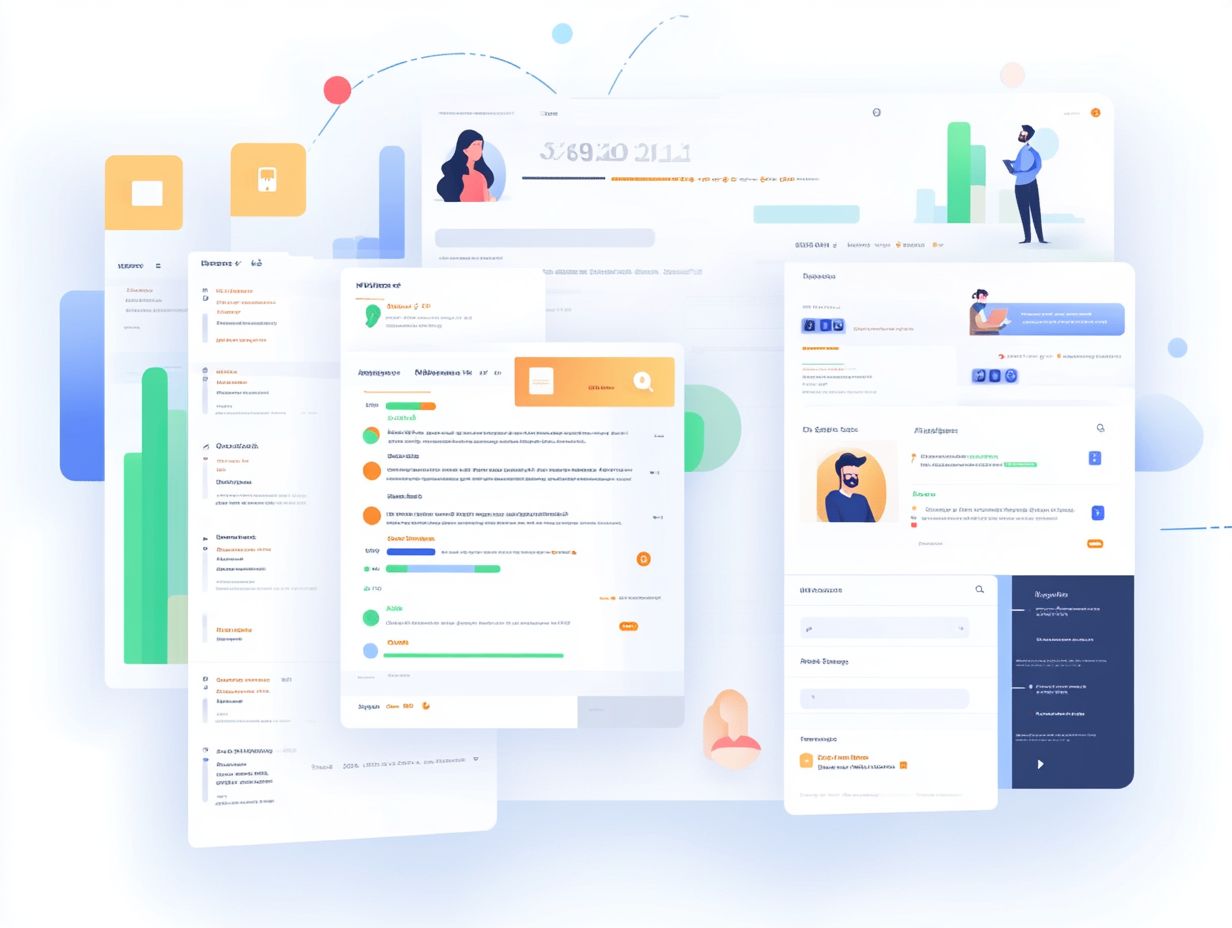
Experience and expertise in CRM migration are crucial as you navigate the technical complexities of transferring data between systems. Partner with someone who has a proven track record in handling similar projects.
The depth of their experience will significantly impact how smoothly your migration process unfolds, especially with critical tasks like data cleansing, mapping, and validation.
A skilled partner will ensure that your customer data remains intact and accurate throughout the transition. Their technical know-how allows proactive addressal of potential issues, preventing costly errors or data loss.
By optimizing the mapping process, they facilitate seamless integration into your new system while preserving the integrity of your data. This ultimately paves the way for a successful CRM migration.
Cost and Time Efficiency
Understanding the cost and time efficiency of a CRM migration service is crucial for maximizing your ROI while minimizing disruptions during data transfer, especially when considering key factors for selecting CRM add-ons.
Carefully consider your budget to allocate financial resources effectively for both implementation and ongoing maintenance. Evaluate potential costs against expected benefits to assess not only immediate expenses but also long-term returns.
Creating a detailed project plan is essential; it acts as your roadmap, outlining each migration phase while aligning tasks with budgetary limits. This ensures all necessary resources are in place.
This strategic approach helps you anticipate challenges, ensuring that the migration process is as smooth and cost-effective as possible.
Data Security and Privacy
Data security and privacy should be your top priority during CRM migration. As you transition from legacy systems to new platforms, it s vital to protect sensitive customer data throughout the entire process.
Follow data protection rules that dictate how personal information is handled. Implementing strong communication strategies will help you provide clear updates to stakeholders, ensuring that everyone understands the importance of safeguarding data during this critical phase.
Establish effective feedback mechanisms to identify potential vulnerabilities and respond swiftly to any concerns. By taking these measures, you can enhance data integrity and confidentiality, fostering greater trust among customers and stakeholders as you navigate CRM migration complexities.
Customer Support and Training
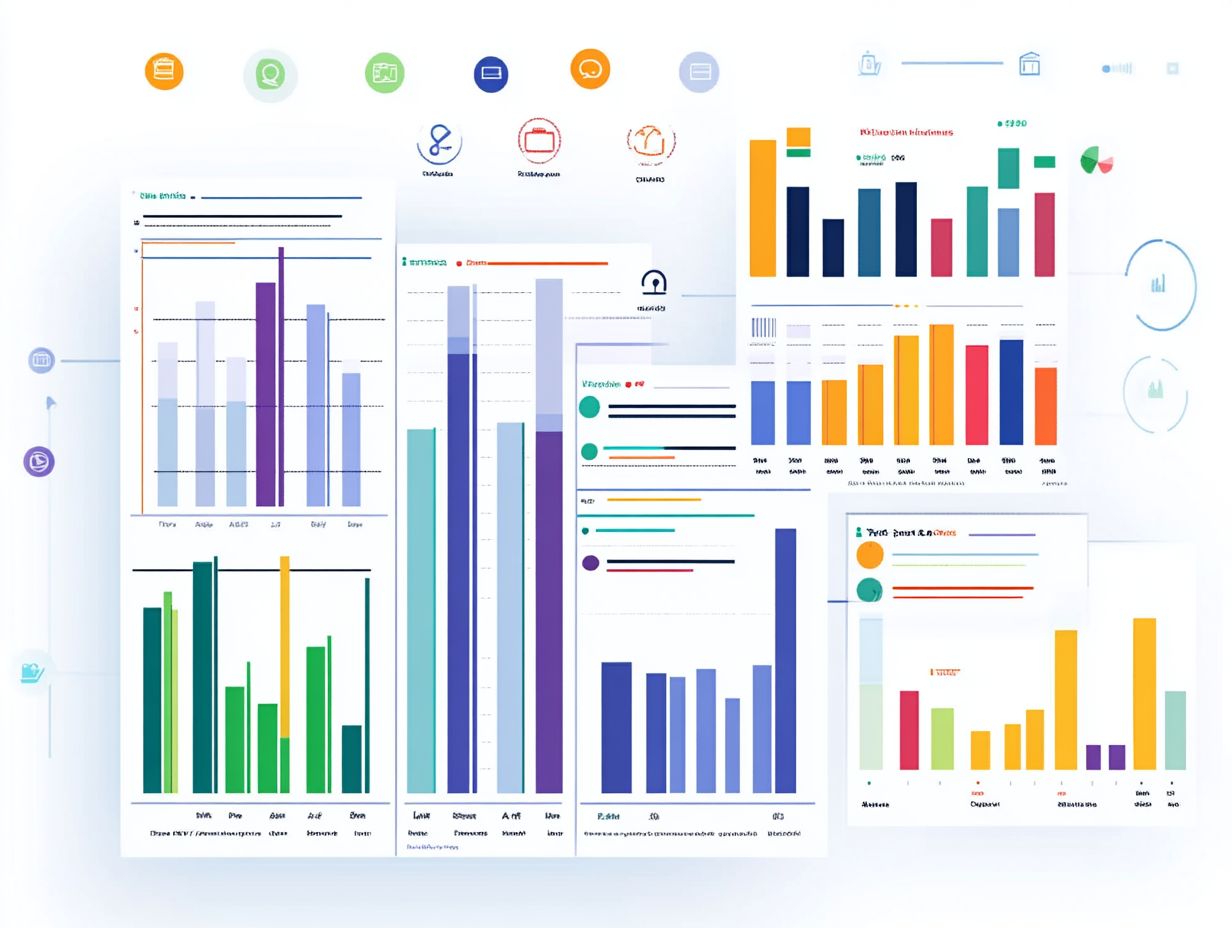
Robust customer support and comprehensive training programs are essential for a successful CRM migration. They enable you to adapt quickly to the new system and provide valuable feedback that fosters continuous improvement.
By prioritizing effective communication, you ensure that team members feel confident navigating new tools during onboarding. Consistent access to training resources and support encourages proactive engagement, allowing you to voice concerns and suggestions.
This ongoing dialogue is crucial in shaping future updates and enhancements. Focusing on employee training not only smooths the transition but also cultivates a feedback loop that drives system optimization, ensuring that the platform evolves to meet your needs and expectations.
Types of CRM Migration Services
When it comes to CRM migration services, you have two main options.
The first is full-service migration, which offers comprehensive support throughout the entire data transfer process.
The second option is self-service migration, where you handle the data migration independently.
Full Service Migration
A full-service migration provides a comprehensive approach to transitioning your CRM. You ll benefit from a dedicated team of experts who manage the entire process from data mapping to user training and system implementation.
This holistic strategy minimizes the risk of errors, ensuring that all your data is accurately transferred and integrated into the new system. Advanced migration tools streamline the process, allowing efficient data handling while maintaining the highest security and compliance standards.
With effective project plans in place, you ll have clear timelines and milestones that facilitate smooth communication among all stakeholders. Expert guidance is vital in navigating any challenges that may arise.
These professionals bring the experience needed to proactively address potential pitfalls, leading to a seamless transition that aligns perfectly with your organization s objectives.
Self-Service Migration
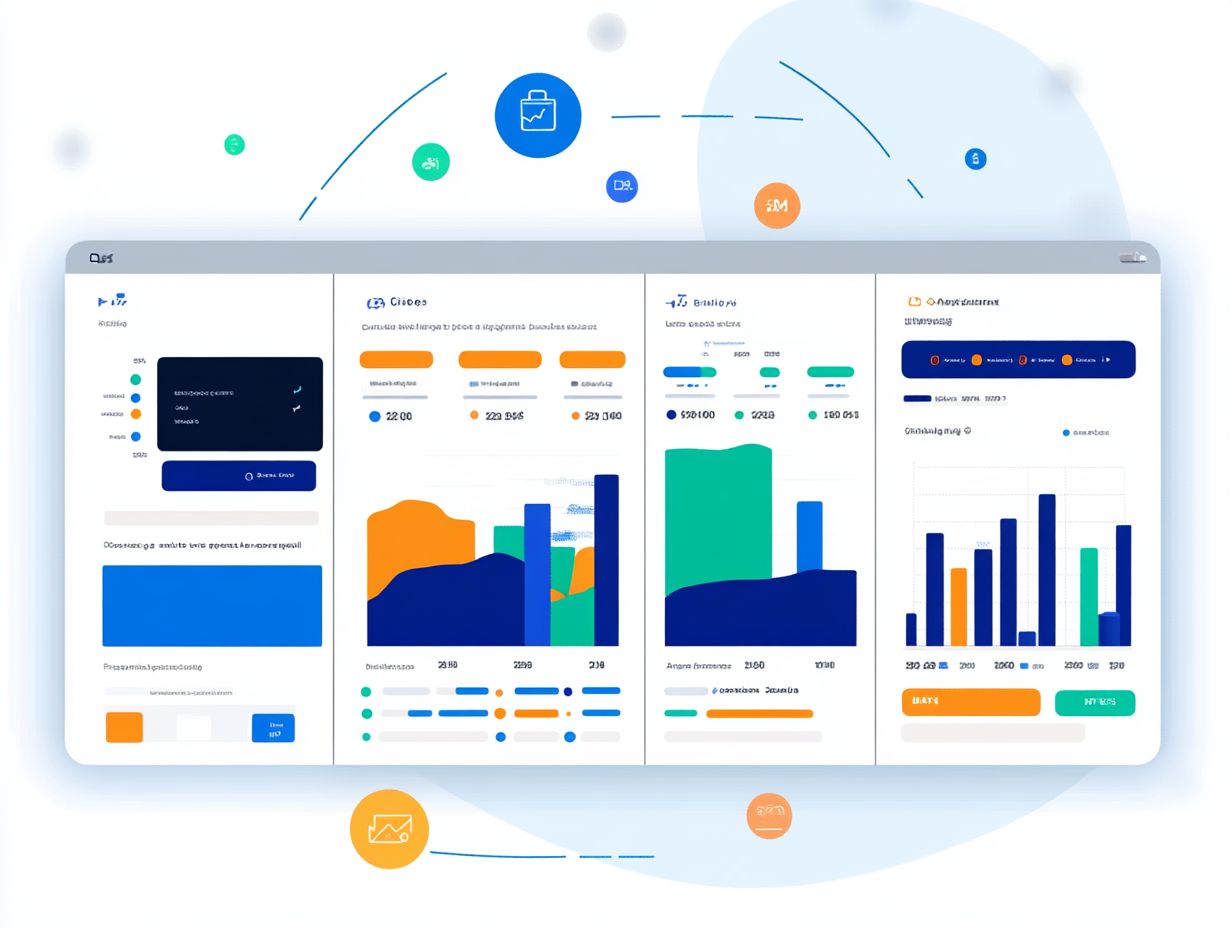
Self-service migration lets you control how you move your data. You can tailor your migration strategy while managing resource allocation and employee training on your own terms.
As you embark on this journey, carefully consider key factors. A well-crafted plan minimizes disruptions and ensures a seamless transition.
Be mindful of potential challenges, such as data compatibility issues or unexpected downtime, which may arise during the migration process.
Invest in comprehensive training programs! They empower employees to master the new system confidently, ultimately leading to a more successful migration experience.
Evaluating and Comparing CRM Migration Services
Evaluar y comparar los servicios de migraci n de CRM son esenciales para que tu organizaci n seleccione al socio ptimo para una transici n sin inconvenientes.
Al aprovechar m tricas de xito claras y comentarios de usuarios durante el proceso de evaluaci n, puedes tomar una decisi n informada alineada con las necesidades y objetivos de tu organizaci n.
Researching and Gathering Information
Thorough research and information gathering are your essential allies when evaluating CRM migration services. They enable you to identify potential partners that align perfectly with your specific data migration needs and objectives, including understanding how to evaluate CRM integration options.
Using various online resources can enhance your research. Explore industry blogs, comparison websites, and expert forums where professionals share their invaluable insights.
Online reviews provide feedback from previous clients, giving you a clear picture of the effectiveness and reliability of various tools and services. Networking at industry events or on professional platforms can reveal personal recommendations and firsthand accounts of successful migrations.
Joining social media groups focused on CRM discussions opens doors to valuable connections and the latest technology updates. This ultimately guides you toward making informed decisions about CRM migration services.
Asking the Right Questions
Asking the right questions is key to evaluating CRM migration services. It helps you uncover important insights about a service provider’s abilities and methods.
This process ensures your partner meets your needs. It also highlights factors like their experience, certifications for data safety, and training methods.
Choose a migration partner that values clear communication. This clarity ensures a smooth transition.
Don t forget to ask about support services after migration. Having reliable help when challenges arise is crucial for your CRM s long-term success.
Frequently Asked Questions
What are some key factors to consider when comparing CRM migration services? Some key factors include cost, ways to keep your data safe, experience and expertise of the service provider, compatibility with your current CRM system, and the level of customer support offered.
How do I determine the cost of a CRM migration service?
The cost may vary depending on the size and complexity of your data, the number of users, and the features included. Request quotes from multiple service providers to find the best value for your budget.
What security measures should I look for in a CRM migration service?
Look for measures such as data encryption during transfer and storage, password protection, and regular backups to ensure your data’s safety and confidentiality.
Why is experience and expertise important in a CRM migration service?
Experience ensures the service provider understands different CRM systems and can handle challenges during data migration. This helps prevent errors and delays.
What should I look for in terms of compatibility with my current CRM system?
Consider how compatible the service is with your current CRM. The provider should have experience with your specific system to ensure a seamless data transfer.
How important is customer support in a CRM migration service?
You need great customer support to help you through any bumps along the way. Look for providers that offer responsive support to ensure a smooth migration.





